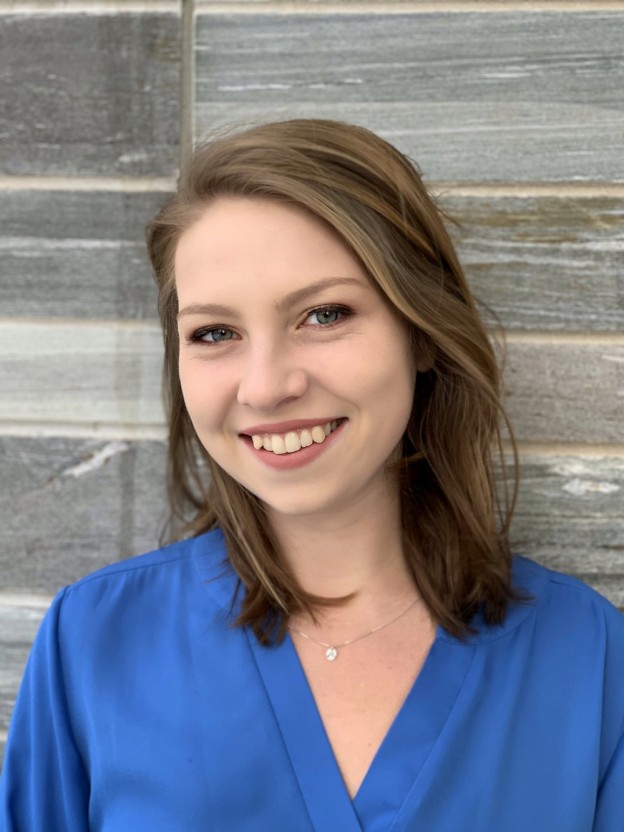As a neuroscience major and music minor, Lizzy Stant ’19 has forged her own unique path at Swarthmore. Four years ago, Lizzy came in with little formal music training, having taught herself the guitar, piano, and voice, with some guidance from music choir directors at home. Attracted to the subsidized voice lessons and encouraged by a music program that works to offer equity for students from diverse backgrounds, Lizzy found her passion for music at Swarthmore.
Over the past four years, Lizzy has participated in the Swarthmore Chorus, Garnet Singers,the staged opera Dido and Aeneas, and a number of smaller music ensembles; she traveled to Florence for a life-changing, three-week voice program; attended the Royal Danish Academy of Music her junior spring for a semester abroad; and embraced the challenges of taking music theory classes, though she’d never had any formal music theory training before coming to Swarthmore.
Lizzy spoke to the benefits of not being afraid to seek out resources, particularly for students who come from underprivileged backgrounds and, prior to Swarthmore, were unable to afford the expense of formal music lessons:
“Low-income students have a hard time asking for help since we’re so used to having to do so much on our own, but it’s something I’m working on. A few other students from low-income backgrounds and I are currently making a resource guide for low-income students at Swarthmore. It’s meant to be from students for students.”
Utilizing tutors and working closely with her vocal coach and teachers have been ways that Lizzy has navigated the rugged terrain of Swarthmore. Now as a senior, with palpable passion, Lizzy has achieved a confidence and direction that is so apparent in her day-to-day activities and conversations. Music and opera have become pervasive forces in her life, crossing over into other interests in environmental studies, neuroscience, and varsity athletics.
“[As a neuroscience major] I see how anatomy and physiology carry over into vocal pedagogy and the way our brains perceive sound. Being a student athlete particularly carries over into singing. I think being an opera singer is equal to being an athlete, since they have similar skills of constantly having to improve yourself with tiny changes in what you’re doing and constant muscle memory – athletics and music are hand-in-hand in that way.”
She continued to speak on the relevance of opera in the 21st century within the context of an environment warped by climate change: “I can picture opera taking on a bigger role in society as we see more tragedies, especially those fueled by climate change. It’s such an intense art form, but I feel that it can be utilized to help people grieve through some of the most difficult things our planet is going to see.”
Lizzy will be performing cross-disciplinary pieces that use music to convey notions of nature, emotional and psychological healing, gender, and sexuality in her senior recital in April. She will be singing opera arias and opera duets with friends and fellow vocalists Emily Uhlmann, Omar Camps-Kamrin, and Shelby Billups; a set by Schubert focused on loss and mourning; a set by other European composers whose works use abundant nature imagery; compositions by African-American composer Florence Price, whose work Lizzy found and fell in love with while doing research on female composers; a musical theater piece; and her token audition song, “Animal Passion,” a piece that uses animal imagery to describe sexual desire and female sexuality.
Her senior recital on April 13th at 3pm in Lang Concert Hall will be a culminating showcase of just a fraction of her accomplishments at Swarthmore.
Marion Kudla ’19
